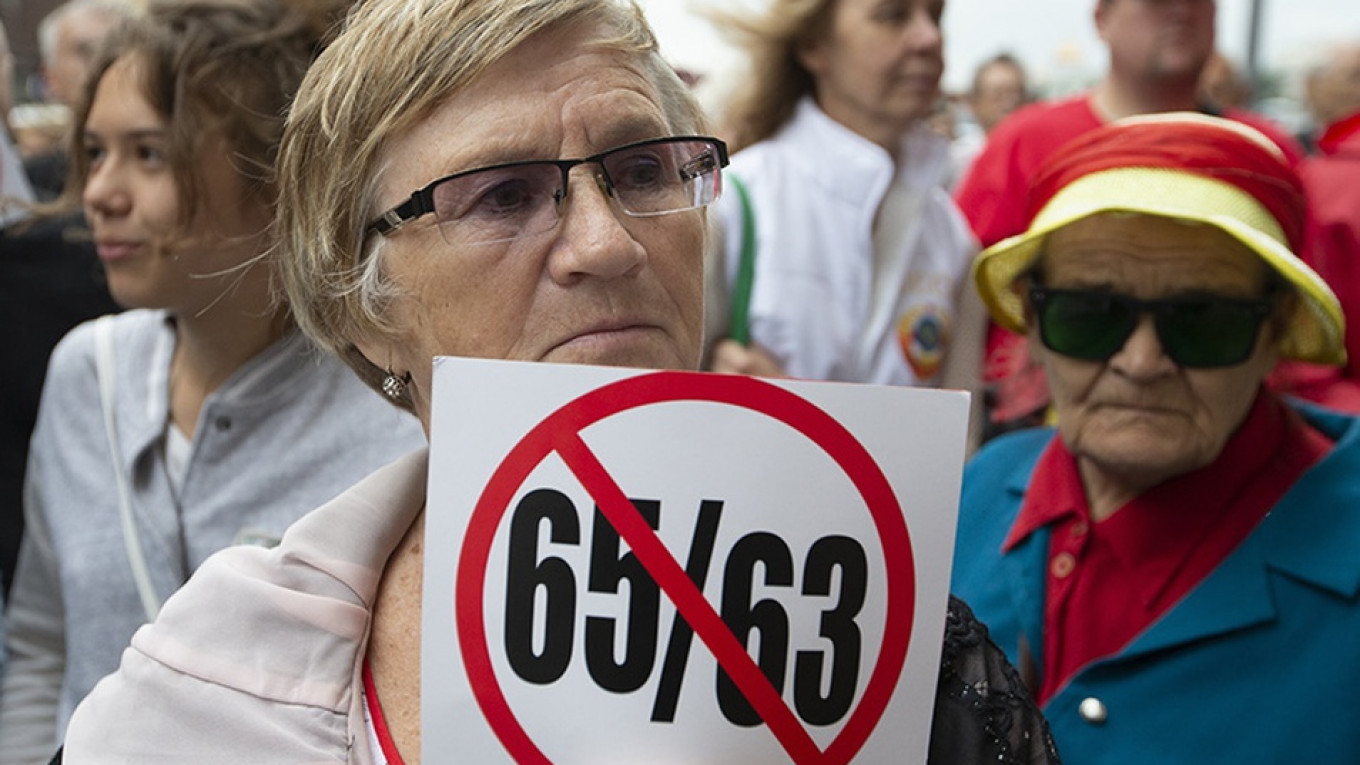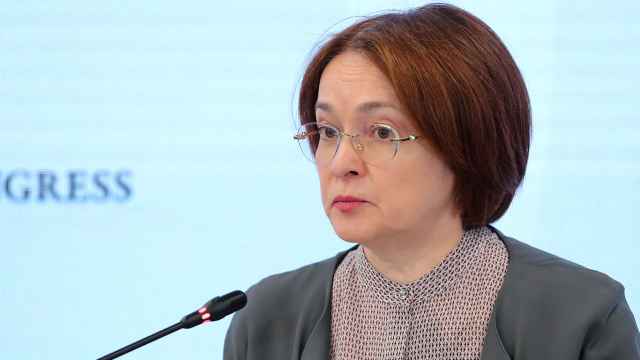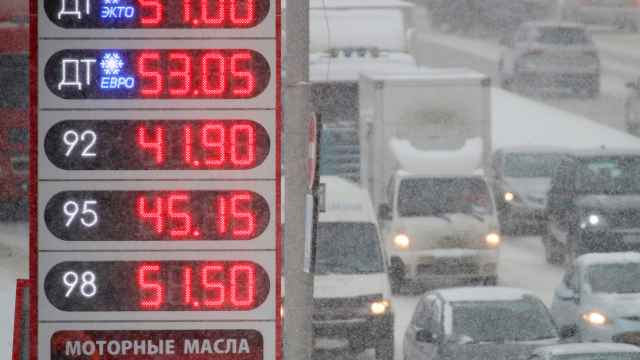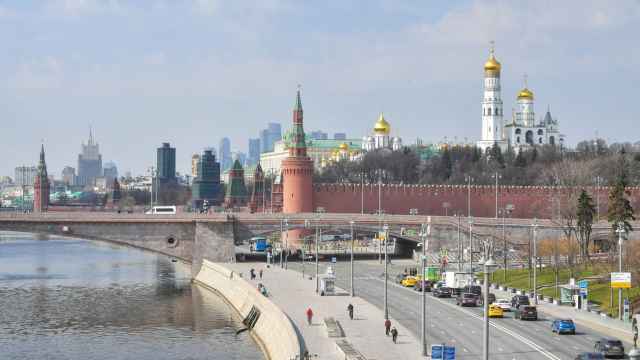Russia’s annexation of Crimea in 2014 helped boost Vladimir Putin’s approval rating to stratospheric levels. Since then, he’s fueled an ongoing conflict in Ukraine, interfered with America’s elections and ordered strikes on behalf of the Assad regime in Syria. Through all of these foreign adventures, 87 percent of Russians continued to support him.
But those days may be coming to an end, and the reason is much closer to home. Putin has moved to change a critical benefit underlying Russian society: the state pension. His proposal, stealthily announced during this summer’s World Cup, hasn’t gone over well.
The legislation would raise the age at which Russians qualify for pension benefits. For women, the retirement age goes up eight years to 63; for men it rises five years to 65. Americans might shrug at this, given that they work until 66 to qualify for Social Security, but in Russia, the average life expectancy for a man is only 67. In the U.S., it’s 76. (Russian women live on average to 77; American women live on average to 81).
Russia’s parliament, the Duma, gave its initial approval to the bill in July, but it requires more votes in the coming months. Some 89 percent of Russians said they opposed the reform, according to a Levada Centre poll in July. More importantly, Putin’s approval rating has sunk to 67 percent, the lowest since a wave of election fraud protests in 2012.
Putin and his party have already made noises about watering down the legislation. But reform supporters argue Russia needs to change, and that it’s leaving productivity on the table when it can least afford it. The nation’s economic recovery has been shallow, with only 1.6 percent growth in the first half of 2018. The pension ages must rise, Prime Minister Dmitry Medvedev said in June, since “the number of working people is decreasing and the number of pensioners is rising.” Moreover, Russia’s current retirement ages are the lowest in Europe.
The effect of such a widespread change would likely vary by region. In the worst-off areas, some Russian men may never see their pension if the current bill becomes law. Novgorod, a northwestern region of Russia, is one of those places. It has an average male life span of 64 years, one of the lowest in the nation.
The economy here never truly recovered from the Soviet Union’s demise. It’s capital, Veliky Novgorod, sits along the Volkhov River, 100 miles south of St. Petersburg. In the Middle Ages, it was a city-republic and became part of the German-led Hanseatic League. These days, it’s a backwater dotted with churches and moldering apartment blocks.
A stroll around the Zapadnoye Cemetery reveals how few Novgorod men actually make it to old age. It’s easy to find graves of young men who died in accidents, wars or gangster feuds — many with epitaphs such as “came to a tragic end.” For the rest, the typical age of death is around 62. Graves of men who lived beyond 70, however, are pretty hard to find.
Nikolay Novichkov, who once advised the region’s governor, blames the “gravitational pull of St Petersburg” for attracting young, better-educated locals. Novichkov said it’s not just alcoholism and other bad health habits that kill Russian men, but also a kind of spiritual desolation. “People there have kind of lost their belief in a bright future,” he said.
Larisa Kovalyova is a cheerful woman with a toothless smile. She calls herself a victim of perestroika, Mikhail Gorbachev’s failed attempt to restructure the Soviet economy in the late 1980s. Growing up in Novgorod, she had just finished school and got a job at a defense plant when everything imploded. The plant closed and she spent the next 17 years working as a cook at a fertilizer factory before getting a job as a bus conductor in 2009. Now 47, she’s been doing it ever since.
She begins to cry at the mention of pension reform. “My salary isn’t enough to restore my teeth,” Kovalyova said. “I thought I’d suffer for another eight years and fix my jaw, but now I’ll have 16 years to wait. I won’t live that long.” She gets around $330 per month, half of which she spends on rent. She supports two adult children and her partner, all of whom are unemployed. “Without the pension, I can never crawl out of this trap,” Kovalyova said.
Kovalyova’s worries are revealing: It’s not about retirement, it’s about money. Pensioners continue to work, sometimes doubling their income and thus allowing for expenditures (such as new teeth) they couldn’t afford before hitting retirement age.
Tatyana Malkova, 48, runs a small real estate and public relations firm but said her main job is caring for her four grandchildren. She explained her role as being indispensable to her adult daughters, who wouldn’t be able to work without her help. Raising the pension age for women could blow that up. “There is no way people we’ll be able to afford babysitters,” Malkova said, given the average monthly cost of $160. “If grannies have to work, children will become parentless.”
Malkova was looking forward to retiring in seven years. Under the new law, she would have to work another 15 years. “For many people,” she said, “this is the last straw.”
Even Russians unaffected by the reform plan are angry. At 71, Kapitolina Gavrilenko has been retired for years. Still, she’s worried about her daughter’s ability to one day care for her own grandchildren, as Gavrilenko now does. Her husband, Ivan Suchkov, becomes agitated when a visitor asks about the legislation. “All the gas and oil that we export — we don’t get anything from it,” he said. “We could have lived like Kuwait, and people could have had guaranteed income.”
He also suggests curbing the Kremlin’s foreign policy adventurism. “They show those ads on central TV, calling for people to crowdfund an operation for a child,” Suchkov fumed. “But one missile shot in Syria is worth that operation. Aren’t they ashamed of it?”
Perhaps sensing the unease, Putin recently criticized his own government’s bill. Suchkov, 70, contends it’s subterfuge, predicting the president will sweep in at the last minute to make a concession, reducing the proposed pension age or extending the transition period. “Ultimately, people will swallow it and he won’t be the one to blame,” he said.
But he acknowledges that he and his wife won’t suffer regardless. “It’s not our battle,” Suchkov said. “but I am telling the young ones: If you don’t want to protest, if you don’t vote in elections, then what do you expect?”
One of those young Russians, law student Kirill Brodsky, doesn’t need any prompting. He chairs the Novgorod chapter of Party of the Future, the latest iteration of opposition leader Aleksey Navalny’s outlawed party. Brodsky said there have already been three pension protests in town, bringing together members of the liberal Yabloko and Communist parties, many of whom face a grim future.
“The only prospect for them here is to get a job at the chemical plant, then get cancer at the age of 40 and end life soon after,” Brodsky said.
The pension bill has exposed previously unseen cracks in Putin’s base, too. Sergey Zheleznyak, a senior official in the ruling United Russia party, was forced to resign after he didn’t show up for the initial Duma vote. In Pskov, a region next to Novgorod, the local chapter of the Communist Party called for Putin’s resignation, as did communists in several other regions.
United Russia backs the reform effort, but has also been responsive to opposition. Andrey Makarov, a deputy in the Duma, has argued publicly that the proposed retirement ages are too high. Meanwhile, other members of the Duma have been discussing amendments ahead of nationwide local elections to be held Sept. 9.
In Novgorod, local United Russia party chief Yelena Pisareva said she is collecting suggested amendments to the new law, such as increasing the length of the transition period, providing better healthcare to people just under the new cutoff and expanding the list of professions entitled to early retirement.
Those lucky professions are largely tied to the state’s security apparatus. Security agents, prosecutors, soldiers and the like can retire in their early forties. Together, with a few other trades such as mining, they make up about 25 percent of Russian pensioners, according to Labor and Social Affairs Minister Maksim Topilin. The proposed reform will not affect them.
Aleksandr Mikhaylov, 52, is a former prosecutor. He got to retire at 45, and his current pension is $450 a month, much higher than average. Yet he’s against the reform, which he sees as “an attempt by the government to cover up their managerial incompetence.”
His wife Yelena serves as a deputy in Novgorod’s city council. Once allied with United Russia, she says she’s now an independent. As she visits with local residents, everyone she meets opposes the bill, she said. But people are still quick to blame their local politicians for the proposed reform, she said, rather than the Duma or Putin—at least not yet.
“As always in Russia, the tsar is good,” she said, “but his ministers are terrible.”
A Message from The Moscow Times:
Dear readers,
We are facing unprecedented challenges. Russia's Prosecutor General's Office has designated The Moscow Times as an "undesirable" organization, criminalizing our work and putting our staff at risk of prosecution. This follows our earlier unjust labeling as a "foreign agent."
These actions are direct attempts to silence independent journalism in Russia. The authorities claim our work "discredits the decisions of the Russian leadership." We see things differently: we strive to provide accurate, unbiased reporting on Russia.
We, the journalists of The Moscow Times, refuse to be silenced. But to continue our work, we need your help.
Your support, no matter how small, makes a world of difference. If you can, please support us monthly starting from just $2. It's quick to set up, and every contribution makes a significant impact.
By supporting The Moscow Times, you're defending open, independent journalism in the face of repression. Thank you for standing with us.
Remind me later.







